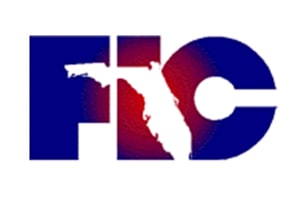
Florida Insurance Council: More than One Billion in Reinsurance Payments Now in Florida Market as Irma Claims Are Paid
More than One Billion in Reinsurance Payments Now in Florida Market as Irma Claims Are Paid
~Reinsurance Providing the Capital to Pay Claims and Write New Business~
Contact: Michael Williams
(850) 222-3767
michael@coremessage.com
Tallahassee, FL – In early September, almost the entire state of Florida was affected by Hurricane Irma, creating over 700,000 claims estimated at $4.6 billon with only 30 percent of claims closed, per preliminary filings with the Florida Office of Insurance Regulation. Meanwhile catastrophe modeling firms project Florida (and rest of US) property insurance losses (residential, commercial and private flood) will eventually reach $20 billion. Puerto Rico’s experience with Hurricane Maria demonstrates what Irma could have done to Florida with a different path, very similar to Hurricane Matthew’s near miss last year. Floridians well remember the horrific hurricane years of 2004 and 2005 and know that 2017 could have been much worse. Fortunately, just over a month later, many homeowners and businesses are in the process of rebuilding and opening for business after receiving prompt payment for their insurance claims. These payments were made quickly due to the prudent decisions by the insurance industry, the regulator and the Florida Legislature to invest in reinsurance over the past decade.
For the past 10 years, the Florida Legislature and private insurers alike have made strategic investments in reinsurance to back private policies and policies held by Citizens Insurance, as well as the Florida Hurricane Catastrophe Fund (FHCF). The Florida Office of Insurance Regulation has regulated the market in such a way as to encourage the formation of a “home grown” domestic insurance business that has created a competitive market and many insurer choices for Floridians. In turn this has reduced the potential taxpayer burden by creating opportunities for home owners to find insurance outside of the Citizens residual market.
The use of reinsurance has “globalized” Florida’s risk thus leading to lower insurance prices and reducing the burden on Florida’s taxpayers. Recently, the historically low cost of reinsurance has incentivized private insurance firms to increase investments in reinsurance. Hurricane Irma’s residential property damage will likely not reach a level that will trigger the FHCF, however, the storm serves as a warning of what could have been. Had Irma stayed on the original track through much of South Florida, damage would likely have been much more severe. Hurricane Irma serves as proof positive that the Florida Legislature acted prudently when making decisions to invest in more private reinsurance, making more capital available should future storms have a more catastrophic impact.
“Private reinsurers called us the day after Irma’s landfall and asked us how much money they should wire into our accounts. By now several billion dollars have been wired into the accounts of Florida domestic insurers. Reinsurance supplements our capital and these expedited reinsurance payments allow us to speed claim payments to our customers and provide liquidity so there is no constraint on writing new business. A healthy reinsurance market unrestrained by regulatory or tax protectionism is absolutely necessary for our market to meet Florida consumers’ needs,” said Don Matz, President of Tower Hill Insurance Group. Tower Hill is a top ten Florida home insurer.
“Florida absorbs reinsurance from around the world. The biggest share comes from Bermuda reinsurers, the largest providers of reinsurance to our domestic home insurance market,” said Cecil Pearce, President of the Florida Insurance Council. “More than 40 percent of Irma home insurance claims in Florida will likely ultimately be reimbursed by Bermuda reinsurers. Florida’s insurance regulators have long recognized this and maintain an excellent relationship with Bermuda’s insurance regulator. Bermuda maintains robust regulatory capital requirements, transparent risk disclosures and requires public financial statements for its regulated reinsurers. Bermuda’s reinsurance regulation has been found by the NAIC to meet or exceed US state based regulatory requirements.”
“In terms of property catastrophe claims, we are still seeing loss development following the recent hurricanes, and this will continue for some time,” said Eric Andersen, CEO of Aon Benfield, Florida’s largest reinsurance broker. “We are working with our clients to understand the impact of these losses on the market overall, recognizing that there are many variables at play. Reinsurers are promptly paying their Florida clients’ reinsurance claims for Hurricane Irma, and in this regard more than $1 billion has been already advanced at this time. As claims develop further we anticipate reinsurers will continue to provide funds to clients. Reinsurers play a critical role in providing liquidity in Florida’s home insurance market, and in so doing promote the diversification of risk globally and the narrowing of the protection gap – the difference between economic losses and insured losses when a natural catastrophe occurs. This helps to promote capital efficiency in the risk transfer process.”
“The value reinsurers provide is three-fold,” explained Brad Kading, President and Executive Director of the Association of Bermuda Insurers and Reinsurers (ABIR). “First, advancing cash for liquidity so insurance clients can pay consumer claims; second, transferring risk around the world and diversifying it, so the cost of hurricanes is not solely paid by policyholders and taxpayers in the affected area; and, third, by providing balance-sheet protection so while insurers are liquidating assets to pay claims, additional funds provided by reinsurers allow them to continue selling new insurance contracts daily and still meet regulatory capital targets. That helps consumers get repairs made faster and helps local economies to recover, rebuild and return to productivity.”
The Florida Insurance Council’s mission is to provide value through education, research, and representation before consumer, legislative, regulatory, and judiciary organizations. The Council is dedicated to the highest standards of business ethics and professionalism; committed to promoting and protecting the viability of the insurance market; resolved to earn consumer confidence and trust, and determined to foster a positive public image of the insurance community.
###
